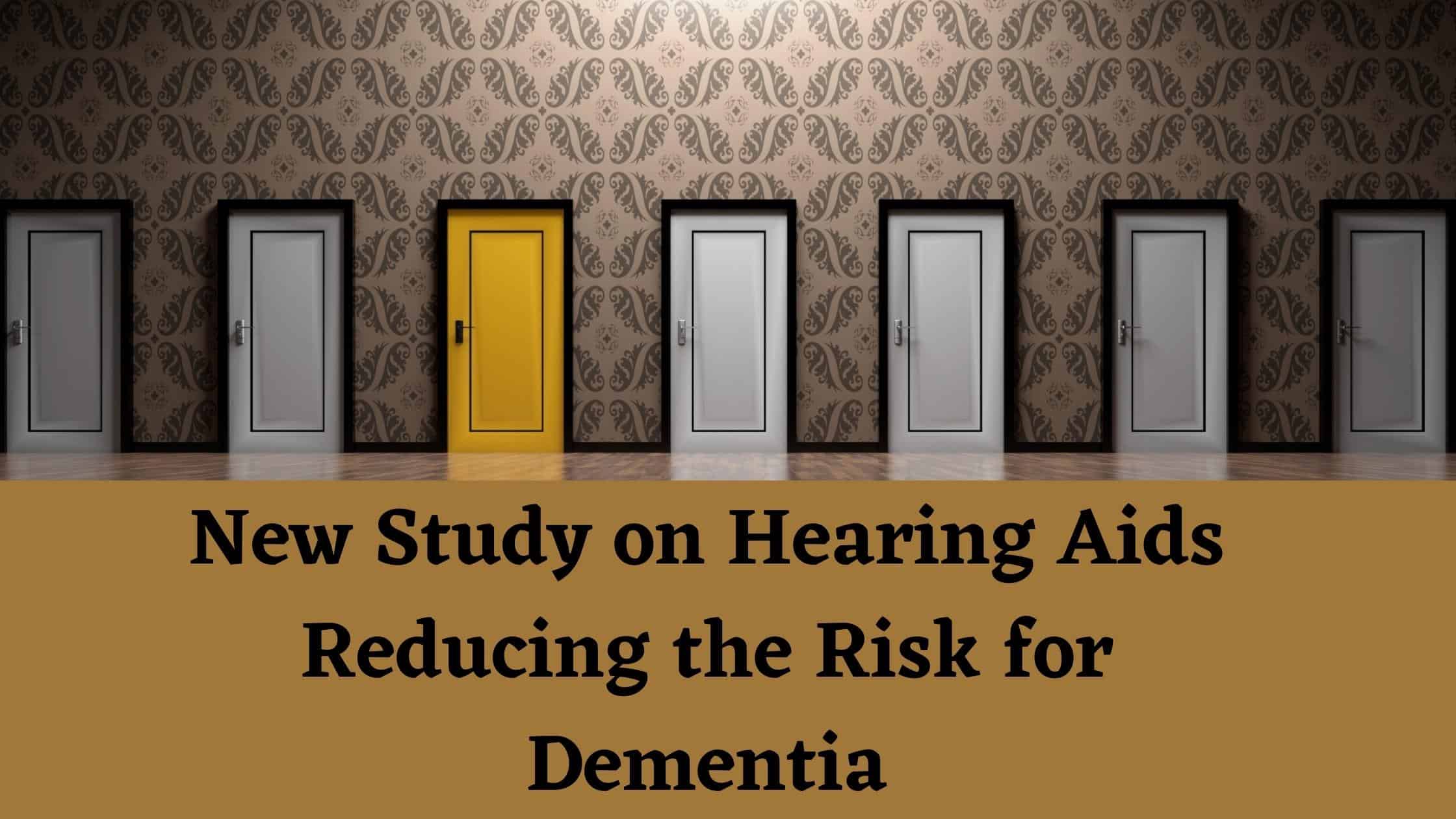
Do you have hearing loss? Have you been putting off getting a hearing test and investing in hearing aids? Researchers are finding that untreated hearing loss is a big risk factor for dementia. Untreated hearing loss can affect your brain in some major ways and can lead to cognitive decline. The good news is that a new study on hearing aids shows that treating hearing loss with hearing aids can reduce the risk for dementia!
Do You Have Hearing Loss?
Nearly 50 million Americans have hearing loss. The risk of hearing loss is also higher as you age. About half of all seniors over the age of 75 have hearing loss. If hearing loss is linked to dementia, this is a major concern.
These are some of the early warning signs of hearing loss:
- Having difficulty following conversations
- Feeling as though speech sounds muffled
- Having trouble hearing consonants
- Asking people to repeat themselves
- Struggling to hear the TV or follow conversations on the phone
- Missing soft sounds in your environment
- Avoiding social situations because you’re having a hard time hearing
Do any of these signs sound familiar? If you have hearing loss, take it very seriously. Hearing loss doesn’t just make it hard to hear. It also impacts your social life, your physical health, and your mental health. Untreated hearing loss might be the reason you stay home and feel socially isolated and lonely. It can also be the reason you don’t get out of the house and get enough exercise. Finally, untreated hearing loss can affect your brain, causing rapid cognitive decline and a higher risk of dementia or Alzheimer’s disease.
New Study on Hearing Aids
A recent study from February 2021 makes it clear that treating hearing loss can be a game-changer. The researchers studied data from a group of 2,114 adults over age 50. Data were collected from 2005 to 2018 in the National Alzheimer’s Coordinating Center database. These older adults all had some level of hearing loss, and all had some mild cognitive impairment or a dementia diagnosis.
Looking at all this data, the researchers found something interesting. Older adults who treated their hearing loss with hearing aids were far less likely to develop dementia. Meanwhile, older adults who ignored their hearing loss had a much higher risk of developing dementia.
Treating hearing loss and wearing hearing aids had a major impact. Hearing aids reduced the risk of developing dementia, and they also decreased the severity of dementia in those who already had a diagnosis. Hearing aids can slow cognitive decline, reducing the risk for dementia.
Treat Your Hearing Loss
If you have hearing loss, the best thing you can do is treat your hearing loss as soon as you notice changes in your hearing. Wearing hearing aids can keep you socially and physically active. You’ll keep your brain more active and reduce the risk of dementia or Alzheimer’s disease. Hearing aids make it easy to follow conversations, enjoy social activities, and catch every word you’re straining to hear. They can also reduce listening effort, so you’ll have more brainpower left over to participate in the conversation rather than just straining to understand what’s being said.
Our Team is Here to Help
Are you ready to get hearing aids? Hearing devices can help keep your mind and body healthy, improve your quality of life, and help you maintain your close relationships. They’ll also slow cognitive decline and reduce the risk of dementia.
Contact us to find out more about your hearing health. We’ll start with a comprehensive hearing test. Hearing loss is underdiagnosed, so the first step is finding out more about your hearing health. If you have some hearing loss, we can talk about treatment options.
Treating Hearing Loss with Hearing Aids
For many older adults, hearing aids are the best treatment for hearing loss. Wearing hearing aids can improve your overall health and wellbeing, both now and in the future. When you can hear clearly and follow conversations, you’ll rediscover the joy of connecting with others. You’ll also be reducing your risk of cognitive decline or dementia. Don’t wait another day, but find the hearing aids that are perfect for you.
